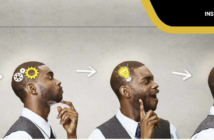Compiled by Angela Mutiso
Keep Pace with Trends in Your Field of Study
“The most important days in your life are the day you are born and the day you find out why.”- Mark Twain
Continuous learning is an essential part of personal and professional growth. It is the ongoing process of acquiring new knowledge, skills, and competencies throughout one’s life. Life-long learning allows individuals to keep up with the rapid pace of change and to adapt to new circumstances and challenge – Mindstone
Investing in yourself is one of the best gifts you can ever give yourself. Many worldwide are convinced that primary and secondary education is just about enough. There are, of course, many more who appreciate the importance of continuous learning.
Most people who have accomplished much in their lives have done so because of that extra mile and living a purposeful and structured life. They have kept pace with trends in their fields of study and ensured that they learn as much as possible outside their areas of expertise. This has helped them to increase their value and success in life. They have ensured that they have a work-life balance, enabling them to have time to do things that please and build them.
Career advisers, indeed.com, strongly advocate for continuous learning, which they explain refers to ongoing educational and professional development opportunities that you might have at work. These learning experiences can teach you new trends in your industry or enhance your skills in significant areas. This tradition can help you learn new hard and soft skills to boost your work experience. They describe hard skills as technical abilities related to a specific job or industry, like programming, medical recording or manufacturing processes. Soft skills are interpersonal characteristics that apply to industries, like communication, problem-solving and analytical thinking. indeed.com stresses that this kind of learning makes you innovative, gives you self-confidence and access to resources, boosts your leadership skills and empowers you to interact with people in your field.
Continuous learning also widens your scope and changes your worldview by building on what you already know. It also boosts your self-esteem, making you more confident and self-assured.
We are often told that failing to plan is planning to fail. When you do not plan your life, you can rapidly slide into depression and emptiness.
In his acclaimed book, Pursuit of Purpose, the late international teacher, speaker, lecturer, evangelist and advisor Myles Monroe described a sobering situation; when a young man attempts to save a drowning elderly man who pleads with him to just let him go. This puzzles the young man because he has known the person he is trying to save for the past twenty years as a rich and successful businessman with fulfilled children and a wealthy wife.
When the young man sought to know why the 76-year-old felt unfulfilled, he was amazed by his answer. The man acknowledged that his entire family was doing fine and his relationship with friends and foe alike was impressive, but he still felt empty, frustrated and sad, and his life had no meaning. He noted that unlike his bank accounts, which were well filled, he was unfulfilled. The older man confessed that for years, he had been so driven by the expectations of others that he hadn’t discovered his reason for being. He did not wish to live with such emptiness. So, on that day, he had decided to be dead than to be alive and not know why.
As the old man was whisked away in an ambulance, the young man could not help but ponder over what he had told him, which was- “Son, do not strive to be like me. Find out who you are and be yourself.” Myles Monroe says; these questions, who am I? why am I here? what was I born to do? What can I do? Where do I fit in? where am I going? What is my potential? are universal questions that haunt every human being. He stresses that purpose is the key to life. Without purpose, life has no meaning. He goes on to say that if your vision for life is measured by status, your upkeep will be your downfall. So, find out who you are.
What should you do to become a better you?
Discipline is an essential factor in self-improvement. Author Jordan B. Peterson emphasizes the importance of continuous learning from a different perspective. He talks about the changes he noted while studying for his clinical PhD. There was a marked improvement in character in everyone who continued in the progressively more difficult five-to-six-year program. He observed that their social skills improved, and they were more articulate. They also found a deep sense of personal purpose. Additionally, the discipline imposed upon them by the necessity of research and thesis preparation, in particular, improved their character. Apparently, being able to write clearly, something that is long, complex and coherent, builds your personality in more intense ways.
Time management is also essential; it shapes your personality and how people perceive you. Not being able to keep time and use it well makes you appear unreliable. No one can reclaim wasted time.
A cheerful personality is a good attribute. There are offices or shops you visit, and you are left wondering whether the person serving you has a problem with you. The degree of indifference while providing services is shocking—no greeting, smile, or warmth. If the service can be rendered without talking, it is be even better for them. Remember, you are attractive when you are optimistic, flexible and open-minded. No matter how stunning you look, people will stay away from you if your social skills are wanting.
Build on your strengths to remain relevant. It helps to always be ahead of the pack. Do not stay in your comfort zone for too long, lest you are left behind and become irrelevant because of stunted growth.
Stay healthy by exercising regularly, take care of your physical and mental health. And ensure that you are eating well, sleeping well, reading, nourishing relationships and networking. Remember that when you invest in yourself, you encourage personal growth and competence.
Financial literacy leads to financial stability. Worldbank.org explains -” financial stability is when a financial system can allocate resources efficiently, manage financial risks, and withstand shocks without becoming impaired. It also means that the financial system can help economic activities run smoothly, and can fix financial imbalances from shocks.” To be honest, not many people are able to manage financial shocks. So put measures in place to avoid this difficult situation. Invest wisely, save, and avoid debt.
A well-groomed person draws people to him/her – so, strive to be sharp, improve your skill sets and take pride in your appearance. Always look confidentt and elegant regardless of the event.
To find yourself, set realistic goals and strive to achieve them. Peterson says when he became a professor, he realized that the students who took on more work got better grades than those who burdened themselves less. He counsels his clients to select the best path currently available to them even if it is far from their ideal. This has the benefit of replacing something that is real with one that is available only in fantasy.
Make sure you do something about your goals every day, do something good for someone and about yourself every day, and keep your doctor, mentor, friends and family close.
Above all, be resilient and adaptable to cushion yourself against this unpredictable and sometimes murky world and from the unforeseen.
The writer is the Editorial Consultant of the Accountant Journal.




